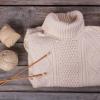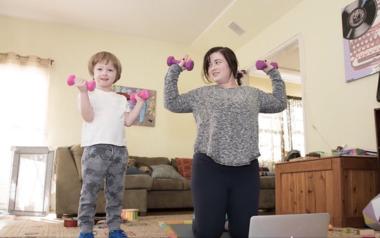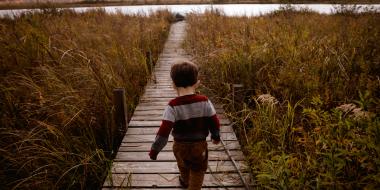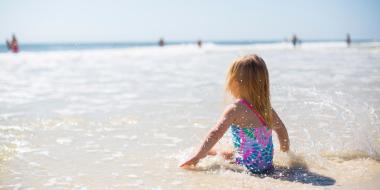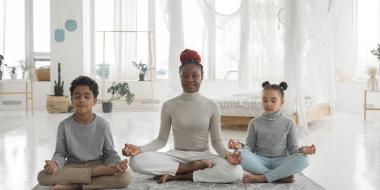We all hope our children will inherit our best qualities, and while I think my daughter lucked out with Mom’s eyes and Dad’s lashes, her looks are just a small part of the traits we’ll pass down. Our children also adopt the way we relate to others, the world, and even our own bodies. That’s why a parent’s approach to working out is even more important than the exercises they are doing and the results they are seeing.
But how do you raise a child who loves their body while you might be struggling to love your own? My experience has shown me that the language we use around exercise has a profound effect on our children, and also on our ourselves.
As a young child, the behavior I saw modeled for me said exercise was a punishment, not a reward. I remember Grandma taking me on her after dinner walk. “I really hate walking,” she told me, “but I have to get rid of this pooch.” She patted her lower stomach. I looked down at my stomach. I never thought I had a “pooch” until my grandmother told me there was something wrong with hers. It was so wrong, that she’d suffer through an activity she hated just to fix it.
The language we use extends to our body language. My dad didn’t have to tell me he hated his stomach too. I saw he was willing to torture himself to correct it. His weapon of choice - the NordicTrack. (It was the ‘90s.) I remember him wearing a super heavy sweatsuit, his face red. He hated NordicTracking, but he clearly hated being a few pounds overweight even more.
We use language to tell our kids that we love them - that they’re brilliant, beautiful and strong. We use body language when we give them hugs that make them feel safe and rub their head to show approval. But when it comes to exercise, we throw all communication skills out the window.
When our kids see us, they don’t see our flaws. They just see us. They don’t seek out problems in our bodies until we use words and actions that teach them that our bodies have problems. As a mother of two, I know there’s not one perfect solution to ensure your kids grow up confident in their skin, but there are things we can do to set them up for success - starting with the language we use.
From now on, consider incorporating a listening exercise into your workout routine. Listen to yourself and how you talk about exercise. Then ask yourself if the language you use is serving you or your children. At one point or another I’ve said all of the following, and over time I’ve come to see how it’s been damaging. Now, I’ve found new language to replace the old words.
Old Language: “I hate running, but I need to for the cardio.”
I still don’t like running, but “hate” is a strong word. So is “need” for that matter. Cardio is good for the heart, but so are plenty of other activities that get you moving.
New Language: “I love dancing, I sometimes forget I’m exercising.”
Old Language: “I’ve gotta get my body beach ready.”
Ready for what? The size of my thighs wasn’t going to get me a better spot on the sand and the joy of salty hair wasn’t a reward I needed to punish myself for. Now, a beach ready body is just a body with SPF 50 on it.
New Language: “I’m ready for the beach.”
Old Language: “My abs have never been the same since kids. Ugh!”
Sadly, I was still saying this when my daughter was old enough to pick up on it. She asked why. So I dug deep for the truth. It was because my body did an amazing thing, carrying two human beings, cut open twice to bring them into the world. I finally realized I was proud of this, not ashamed of it.
New Language: “My abs have never been the same since kids. Cool!”
Bodies are meant to change. Our kids’ bodies are changing all the time! Let’s give them the space and the language to love themselves as they evolve. While the new language may feel odd at first, it’ll start to feel more normal as time continues. Your child won’t think these statements are weird. You’re normalizing the language for them early on.
It wasn’t until I added these listening exercises into my workout routine that I really started to see results. It became clear that my relationship with my body starts in my head - not in my abs or my glutes or anyplace else.
So much of what we teach our children, we do by accident. So many of their lessons are hidden in our actions. With our words and with our actions, let’s make sure we’re telling our kids what we want them to hear. Let’s make peace with exercise, for their sake.
Next, learn how to teach your children about having a healthy relationship to food.

